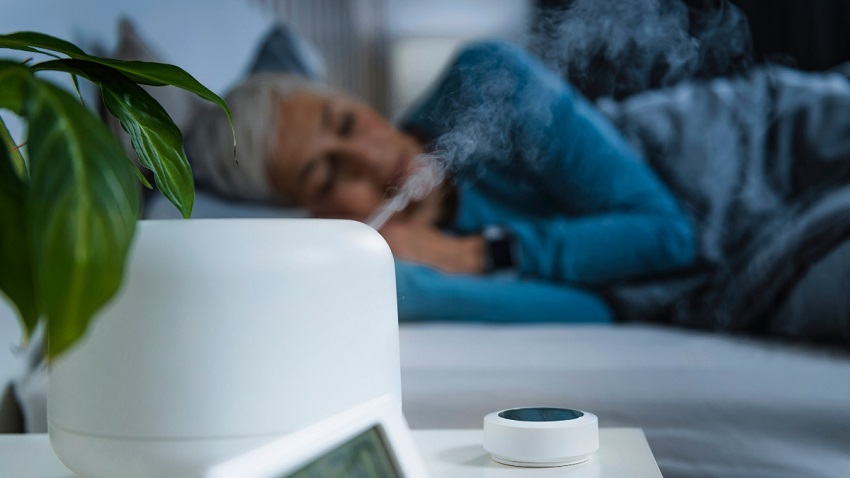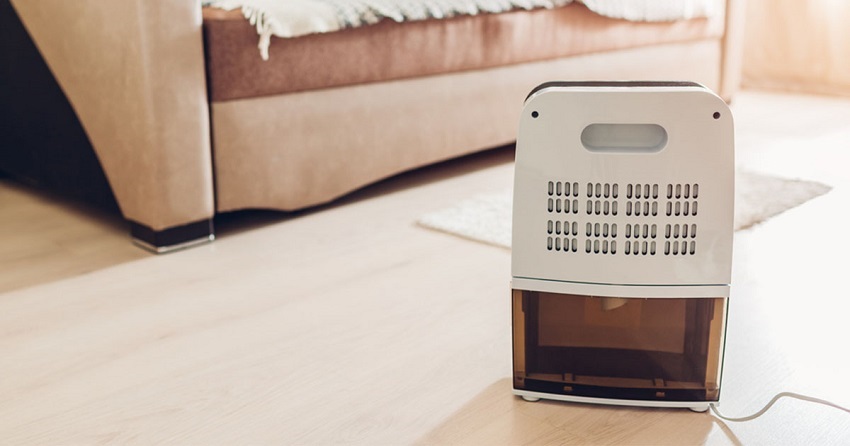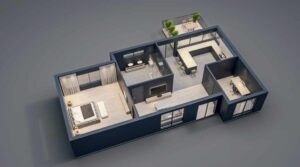Can Humidity Make Sleep Apnea Worse?

We all know how important a good night’s sleep is for our overall health and well-being. However, for individuals with sleep apnea, a common sleep disorder, achieving restful sleep can be a challenge. Sleep apnea is characterized by pauses in breathing during sleep, which can lead to fragmented sleep, daytime fatigue, and other health complications. While there are various factors that can contribute to sleep apnea, one question that often arises is whether humidity can make this condition worse. In this article, we will explore the relationship between humidity and sleep apnea to gain a better understanding of its impact on this sleep disorder. This content is provided by https://celb.org/
Understanding Sleep Apnea
Before delving into the effects of humidity on sleep apnea, let’s briefly understand what sleep apnea is. Sleep apnea is a sleep disorder characterized by repeated pauses in breathing during sleep. These pauses, known as apneas, can occur multiple times throughout the night and may last for several seconds or even minutes. This disruption in breathing can cause a decrease in oxygen levels, leading to various health issues and poor sleep quality.
There are three main types of sleep apnea: obstructive sleep apnea (OSA), central sleep apnea (CSA), and complex sleep apnea syndrome (also known as treatment-emergent central sleep apnea). OSA is the most common type and occurs when the airway becomes partially or completely blocked during sleep, usually due to the relaxation of the throat muscles. CSA, on the other hand, happens when the brain fails to send proper signals to the muscles that control breathing. Complex sleep apnea syndrome is a combination of both OSA and CSA. Explore humidifier for sleep apnea.
The Role of Humidity in Sleep Apnea
Now, let’s address the question at hand: Can humidity make sleep apnea worse? While humidity itself may not directly cause sleep apnea, it can contribute to the severity of the condition and the symptoms experienced by individuals with sleep apnea.
Humidity refers to the amount of moisture or water vapor present in the air. High humidity levels can have an impact on the airway and breathing during sleep, which can exacerbate the symptoms of sleep apnea. When the air is humid, it can cause the airway to become swollen or congested, making it narrower and more susceptible to blockages. This can increase the frequency and duration of apneas during sleep, leading to more disrupted sleep and reduced oxygen levels.
Moreover, high humidity levels can also affect the comfort of individuals using continuous positive airway pressure (CPAP) machines, a common treatment for sleep apnea. CPAP machines deliver a continuous flow of air pressure to keep the airway open during sleep. However, in humid environments, condensation can form inside the CPAP tubing and mask, causing discomfort and potentially reducing the effectiveness of the treatment.
Research Findings and Studies
Several studies have investigated the relationship between humidity and sleep apnea. One study published in the Journal of Clinical Sleep Medicine found that high humidity levels were associated with an increase in the number of apneas and hypopneas (partial blockages of the airway) in individuals with sleep apnea. Another study published in the American Journal of Respiratory and Critical Care Medicine found that higher humidity levels were linked to decreased airflow and increased airway resistance in sleep apnea patients.
These findings suggest that humidity can indeed have a negative impact on sleep apnea and its symptoms. However, it’s important to note that individual responses to humidity may vary. Some individuals with sleep apnea may be more sensitive to changes in humidity, while others may not experience significant effects.
Managing Humidity for Better Sleep
If you have sleep apnea and are concerned about the effects of humidity on your condition, there are steps you can take to manage humidity levels and promote better sleep:
- Use a dehumidifier: A dehumidifier can help reduce humidity levels in your bedroom, creating a more comfortable sleep environment.
- Keep your bedroom well-ventilated: Ensure proper airflow in your bedroom by opening windows or using fans. This can help prevent the air from becoming stagnant and humid.
- Clean and maintain your CPAP equipment: Regularly clean and dry your CPAP machine, tubing, and mask to prevent the buildup of moisture and minimize discomfort.
- Consider using a CPAP humidifier: CPAP humidifiers can add moisture to the air delivered by the machine, reducing the dryness that some individuals may experience.
- Consult with a healthcare professional: If you have concerns about the impact of humidity on your sleep apnea, it’s essential to discuss them with your healthcare provider. They can provide personalized advice and guidance based on your specific situation.
Conclusion
In conclusion, while humidity may not directly cause sleep apnea, it can contribute to the severity of the condition and its associated symptoms. High humidity levels can lead to swollen airways, increased blockages, and reduced effectiveness of CPAP treatments. Research suggests that managing humidity levels in the sleep environment can help improve sleep quality for individuals with sleep apnea. By using dehumidifiers, ensuring proper ventilation, and maintaining CPAP equipment, individuals can create a more comfortable sleep environment. Consulting with a healthcare professional is also important to address any concerns and receive personalized recommendations.
Frequently Asked Questions
Does humidity affect all types of sleep apnea?
Humidity can potentially affect all types of sleep apnea, but the impact may vary among individuals.
Can using a humidifier worsen sleep apnea symptoms?
While a humidifier can add moisture to the air and alleviate dryness, it’s essential to ensure proper cleaning and maintenance to prevent the buildup of mold or bacteria, which could worsen symptoms.
Is there an ideal humidity level for individuals with sleep apnea?
The ideal humidity level may vary among individuals. It is recommended to maintain a comfortable humidity level in the bedroom, typically between 30% and 50%.
Are there other factors that can worsen sleep apnea?
Yes, various factors such as obesity, smoking, alcohol consumption, and certain medications can contribute to the severity of sleep apnea.
Can reducing humidity eliminate sleep apnea symptoms?
While reducing humidity may help alleviate some symptoms, it is not a guaranteed solution. Proper diagnosis and treatment under the guidance of a healthcare professional are essential for managing sleep apnea effectively.







